"The Alan Turing Cryptography competition is an online competition, run by Manchester University, which is in its 7th year now. Each week a new chapter came out online which included part of a story and a message which had been encrypted. We had to decode the message and enter the required word from the plaintext (original message). The faster you solve the code and enter the answer online, the more points you get. The first few chapters were fairly easy and they only took us half an hour to solve, but the last few were really hard (the final chapter took us 5 hours to decode!).
As a team we managed to solve all the chapters and get 82 points out of 90, putting us in 3rd place, only 1 point behind the winners! We were really happy with our result as there were over 1000 teams taking part in the competition. As we placed in the top three, the organisers of the competition invited us to a prize giving and live cryptography day at the University of Manchester, which we were all excited to attend.
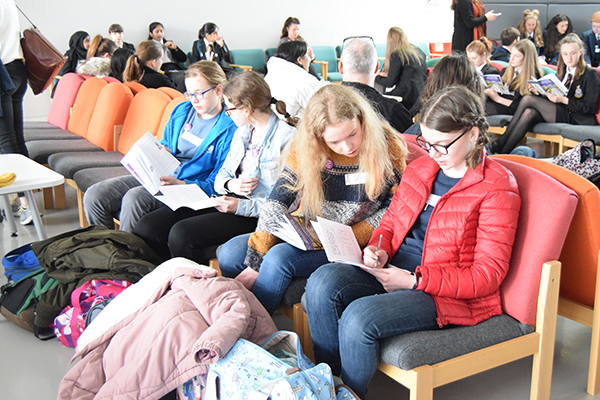
We arrived at the Alan Turing building (the department of maths) at 12. First, we signed in and were given booklets with some coding puzzles to get us thinking and practising our deciphering skills. After a tasty lunch, the live cryptography challenge began and we set off to our allocated rooms to find out the first code that we were facing. The live cryptography challenge began at 1 and the deadline to submit our answers was 2:30.
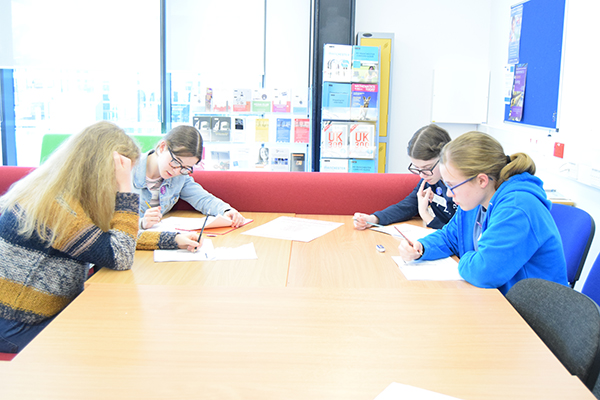
We received the first code through an audio file; we had to note down the series of numbers that were read out. We worked out that each number corresponded to a letter of the alphabet. For example, 1=a 2=b... This is called a letter-number cipher. There were two more codes to solve, one was a Caesar cipher and the final code was a very long message, made up of several symbols. We analysed the frequency of each symbol to figure out which symbol represented which letter. Each code that we deciphered gave us a clue/riddle to help us work out the final code word. We completed all the codes with 45 minutes to spare. Our team finished in 6th place overall.
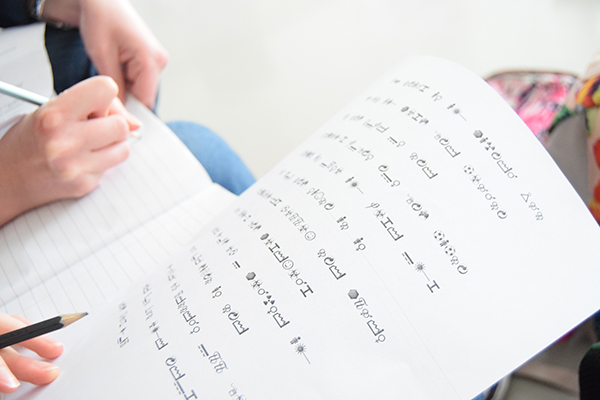
After the live competition, we left the Alan Turing building and went to the University theatre, where we received two lectures. The first was from a man in the military, who had been to places such as Afghanistan and Iraq. He described to us why cryptography is so important in modern day. He also taught us how you can send encoded messages using a ‘private key’, a ‘session key’, and a ‘public key’ , which allows you to send messages online without them getting intercepted. Secondly, a Data Scientist from SkyScanner came to talk to us about careers in maths and science. He explained that he feels that it doesn't matter if you don't know what you want to do, but recommends that you follow something that interests you at the time. He used personal experience to tell us that he had a wide range of jobs before he found what was right for him. This included travelling around the world on a ship and working with famous faces on the BBC. He advised us to pursue our interest in maths and cryptography, as this can lead to a wide range of possible jobs.
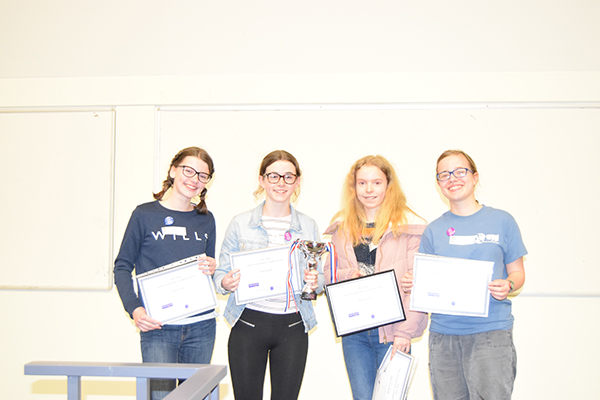
After that, there was a brief question time where the organisers of the competition answered questions from some of the students at the cryptography day. Following on from this was the prize ceremony, where the winners of both the live and online competition were announced. When it was our turn, we went up on stage and were greeted with handshakes, several certificates, and an amazon voucher each. We were also presented with a third place trophy which had our team name engraved on it. We were even more thrilled with our place after the prize giving, as we found out that the two teams that had beaten us were year eleven students.
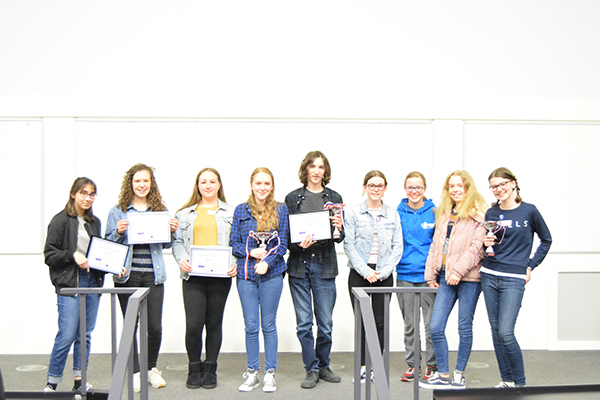
The trip was a great opportunity for all of us and we are all very excited to compete again next year!"
Owned by: RCE | Last Published: 01/05/2018 11:46:08 | Next Update: N/A